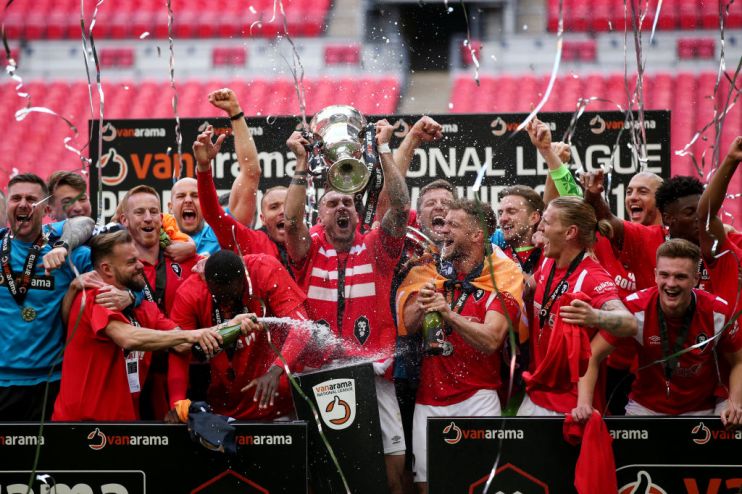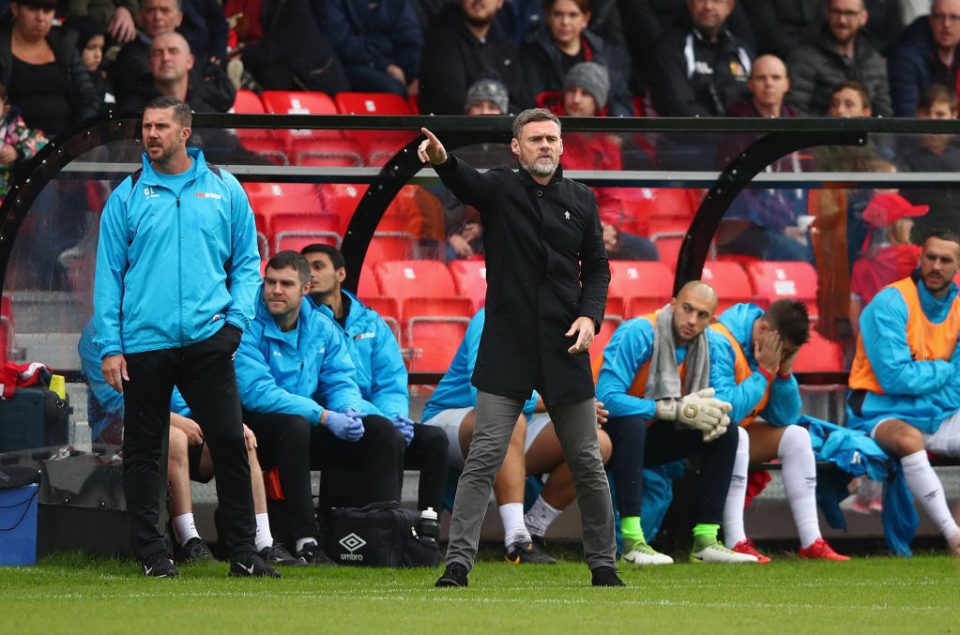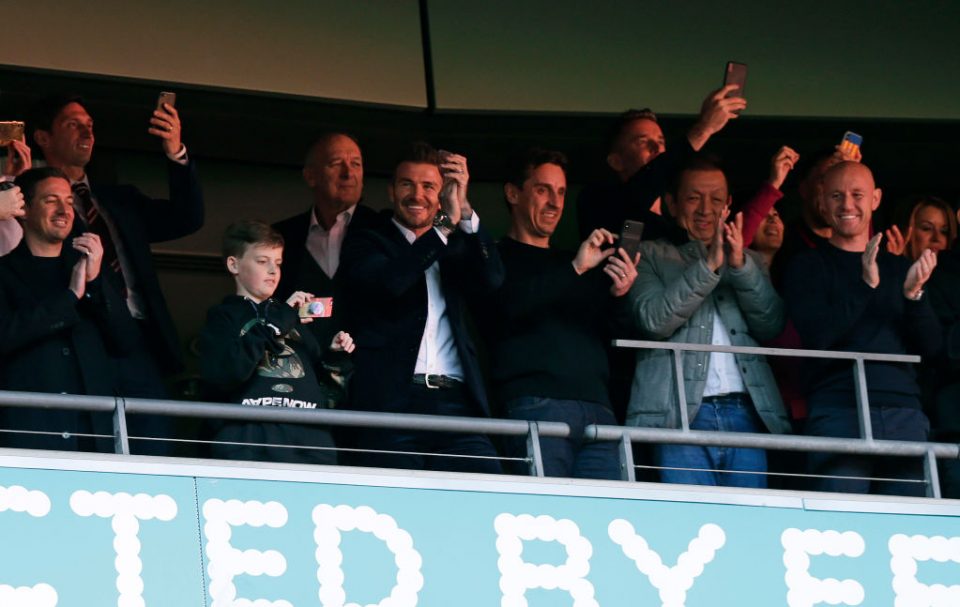Salford set sights on League Two promotion as club stick with ambitious approach

On a cold October’s night in 2013, just 65 people turned out to watch Salford City host Cammell Laird in the Evo-Stik League Division One North, the eighth tier of English football.
It was the season before the club was taken over by a consortium that includes former Manchester United stars Gary and Phil Neville, Paul Scholes, Ryan Giggs, Nicky Butt and David Beckham, and they would finish the campaign 12th with an average attendance of 139.
Five years and four promotions later, those days are but a distant memory, with Salford about to embark on their first season in the English Football League on Saturday against Stevenage.
Read more: Brentford are getting Premier League ready as they prepare to bid farewell to Griffin Park
This year they will play in front of thousands at the redeveloped Moor Lane – now rebranded the Peninsula Stadium in one of several sponsorship deals with high-profile brands including TalkTalk and Sky Sports prediction game Soccer Saturday Super 6. It has a 5,100 capacity, for which they have so far sold 1,900 season tickets.
The club’s meteoric rise under the ownership of the so-called Class of ‘92 – the six ex-players own 10 per cent each, with the rest held by Singaporean billionaire Peter Lim – has been unprecedented, but manager Graham Alexander insists there is a drive to achieve even more.
“The club’s recent history is about being successful and trying to win promotions,” Alexander tells City A.M.
“We’re not going to stop that sort of ambition, but we are well aware of how tough it will be. We will have to earn everything we get this season but we’re an ambitious club, we’ve got ambitious people within it and we want to win.”

The project
Former Scotland right-back Alexander, who played in the Premier League with Burnley, joined last summer and guided Salford to promotion from the National League at the first attempt. Having previously managed Fleetwood Town and Scunthorpe United, dropping out of the Football League was a risk, but one that looks to have paid off.
“Project is the best word for it,” says Alexander. “It gets bandied about a lot in modern football, but you can see the genuine progress this club has made.
“It was tough to drop out of the League, that was the biggest hang-up I had about the role, but everything else was in place. Now we’ve got into the Football League, the job’s not done. We want to continue on that trajectory upwards and we’ll see what this season brings us.”
While the club’s ambitions are sky-high and given weight by the financial resources of the current regime, Alexander is keen to temper expectations, if simultaneously buoyant at the prospect of taking this once small-time club to the top.
“If people asked five years ago, ‘would Salford be in the Football League?’, people would be saying that was optimistic,” the 47-year-old says.

“There’s nothing wrong with being optimistic. We’re positive about what we can do in the future, but the one thing you can’t do in football is look too far ahead. You can on the business side of it, the structural side, but on the football side we have to focus on this season.
“While we’ve got a private ambition for the long term, we can only focus on where we are now. We’re a League Two team which we are extremely pleased about, but we obviously want to try and better ourselves.”
Ignoring the critics
Salford have been busy bettering themselves with a number of additions this summer, signing Richie Towell from Brighton, Luke Armstrong from Middlesbrough, Martin Smith from Swindon Town and Cameron Burgess on loan from Scunthorpe, among others.
It adds to the quality signings made last summer, such as Adam Rooney, who joined from Aberdeen on a contract worth a reported £4,000-per-week.
It is the kind of business that has led to accusations of buying success, most publicly from outspoken Accrington Stanley owner Andy Holt, and also saw Salford become the pantomime villains of the National League, with Hartlepool boss Craig Hignett comparing their “frightening” spending capabilities to a League One side.
“Everyone is entitled to their opinion, whether it’s factually right or wrong is up for discussion, but listen, we never hide away from the fact we have a good competitive budget for the league we’re in,” Alexander says.
“We don’t try to pull the wool over people’s eyes with that, but you still have to do an awful lot of work. Money doesn’t guarantee success.”
Although there has been a barrage of criticism, the owners have been on hand to offer Alexander all the support he needs. Naturally, they have a say in all major decisions, but when it comes to footballing matters, the manager is left to his own devices.
Read more: The Bowyer effect: Charlton boss has restored belief among fans ahead of Championship return
“The main link I have is through Gary,” Alexander says. “We communicate most weeks and talk about the players, the games, can we improve – just normal manager-owner discussions.
“They’ve brought me in to manage the football side and that’s what they allow me to do. They’re always there for support, that’s the biggest thing I noticed throughout last season.
“Through the good times, and especially through the bad times, there was great support from those guys and that means a lot, not just to me, but to my staff and players.”